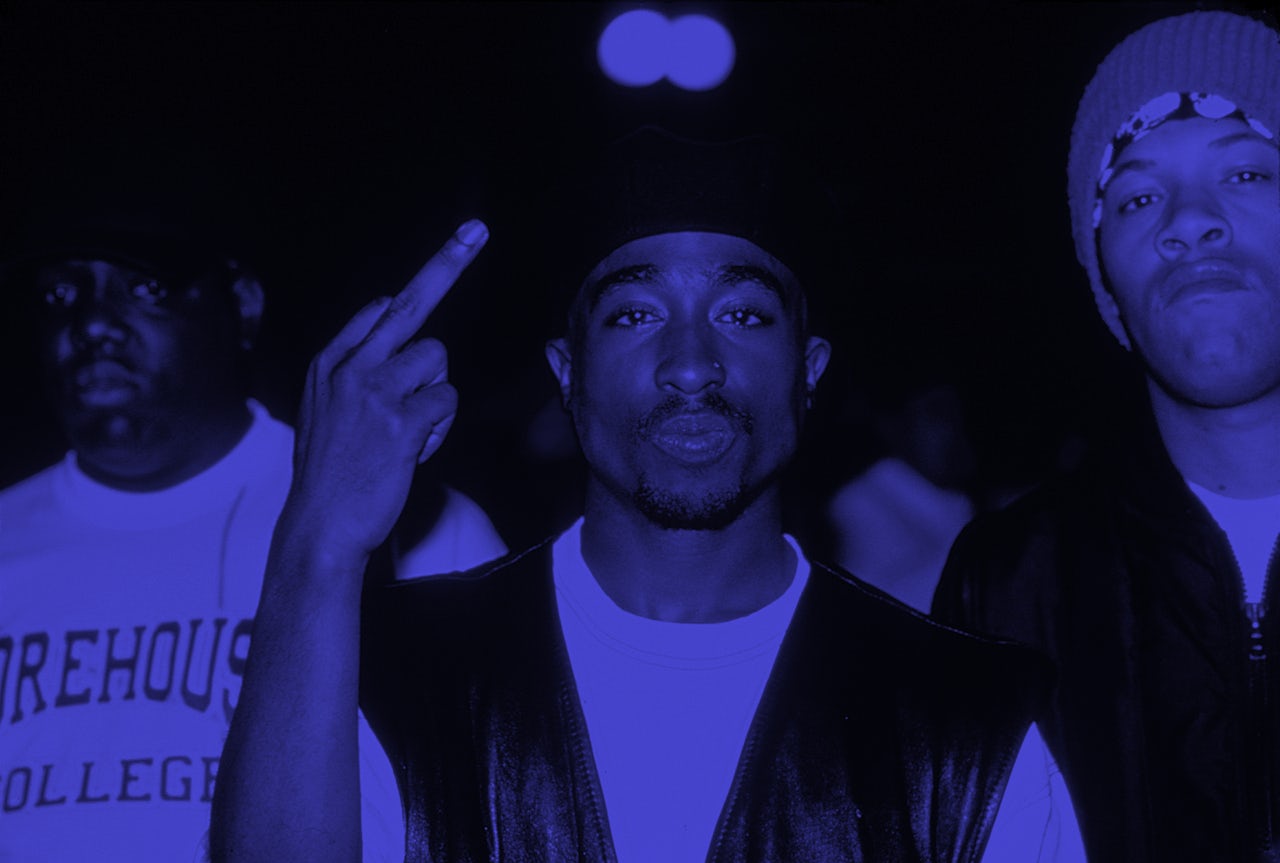On Tuesday, the Rock & Roll Hall of Fame announced its 2017 class of inductees. Among them were rock stalwarts like Journey, Pearl Jam, and Yes, as well as an interesting addition: 2Pac.
Over the past few years, the Hall of Fame has expanded its view of what qualifies as "rock ’n’ roll." In 2007, hip-hop progenitors Grandmaster Flash and The Furious Five were the first hip-hop act to be inducted into the Hall of Fame, followed by Run-DMC in 2009, The Beastie Boys in 2012, Public Enemy in 2013, and last year N.W.A.
While hip-hop artists aren’t traditionally seen as rock stars, there is a case to be made for viewing them as such. Carl Harp, a public relations representative for the Hall of Fame, told me over the phone that "Rock ’n’ roll, for us, is an attitude and a way of life. We consider hip-hop to certainly be a part of that."
There’s also the fact that there is a pretty clear throughline between hip-hop and rock music.
A new book by Jack Hamilton titled Just around Midnight: Rock and Roll and the Racial Imagination sheds light on how rock music’s roots in R&B and blues became so indelibly tied to the white guys we associate with rock 'n' roll. The book looks at a number of the most classic bands in the rock 'n' roll canon and points to when those acts became entranced by music coming out of black communities.
Hall of Fame 1989 inductees The Rolling Stones, for example, were enthralled with folk and blues music. From an excerpt of Hamilton’s book, published on Slate:
Early press coverage of the band went out of its way to emphasize that the group was strictly a blues or R&B band: "They are, they claim, first and foremost a rhythm-and-blues group," noted one 1963 profile. “If you refer to them as a beat outfit, they frown. If you venture to suggest that they play rock ’n’ roll, they positively glower.”
In order for a musician to be considered for the Hall of Fame, their first release must be at least 25 years old. There is also a rather democratic process involving fans who vote for potential nominees. Once the nominees are selected, a changing group of industry professionals, journalists, and former inductees selects who actually gets inducted. This year, many pointed to the fact that Chic, a funk band from the late disco era who had two No. 1 hits — "Le Freak" in 1978 and “Good Times” in 1979 — had yet again been snubbed by the Hall of Fame. Nile Rodgers, the guitarist from Chic, was given the award for musical excellence, despite his band being rejected from the Hall an astonishing 11 times.
"It’s just perplexing to me. I want to know why I am in and why my band is not. What’s the thing that makes me cooler than them?" Rodgers told the Times.
Calculating who gets in and who doesn’t is a challenge for just about all award shows. The Grammys snubbed Rihanna this year despite her album’s almost unanimous acclaim. Beyoncé’s country hit "Daddy Lessons" was outright rejected by the Grammy’s country music committee. There are always issues of inclusion, too. Can an organization like the Rock & Roll Hall of Fame appreciate the breadth of musical contributions made by women? Many believe they could do a much better job: Only 15 percent of past inductees have been women.
"One of the criteria we have is cultural impact," Harp explained, “so, with someone like 2Pac, I think it’s pretty evident.”
Depending on who you ask, there are plenty of artists whose cultural impact seems evident. In fact, contemporary culture places much less of a premium on genre definitions like rock ’n’ roll. It certainly isn’t unreasonable, for example, to call someone like Rihanna the biggest rock star of our time. So when it comes to "cultural impact," what do we lose by confining ourselves in terms of rock? Especially when that definition, as evidenced by the recent string of hip-hop inductees, is far from fixed?
The Hall of Fame’s six total hip-hop nominees are certainly a step in the right direction in terms of acknowledging the contributions made by the hip-hop community to music writ large. But perhaps it’s time to rethink the Hall of Fame altogether. As the museum's 25 year window expands to more recent movements in culture, it might be time to widen the hall's scope. Maybe, to start, we could just call it the Music Hall of Fame.
